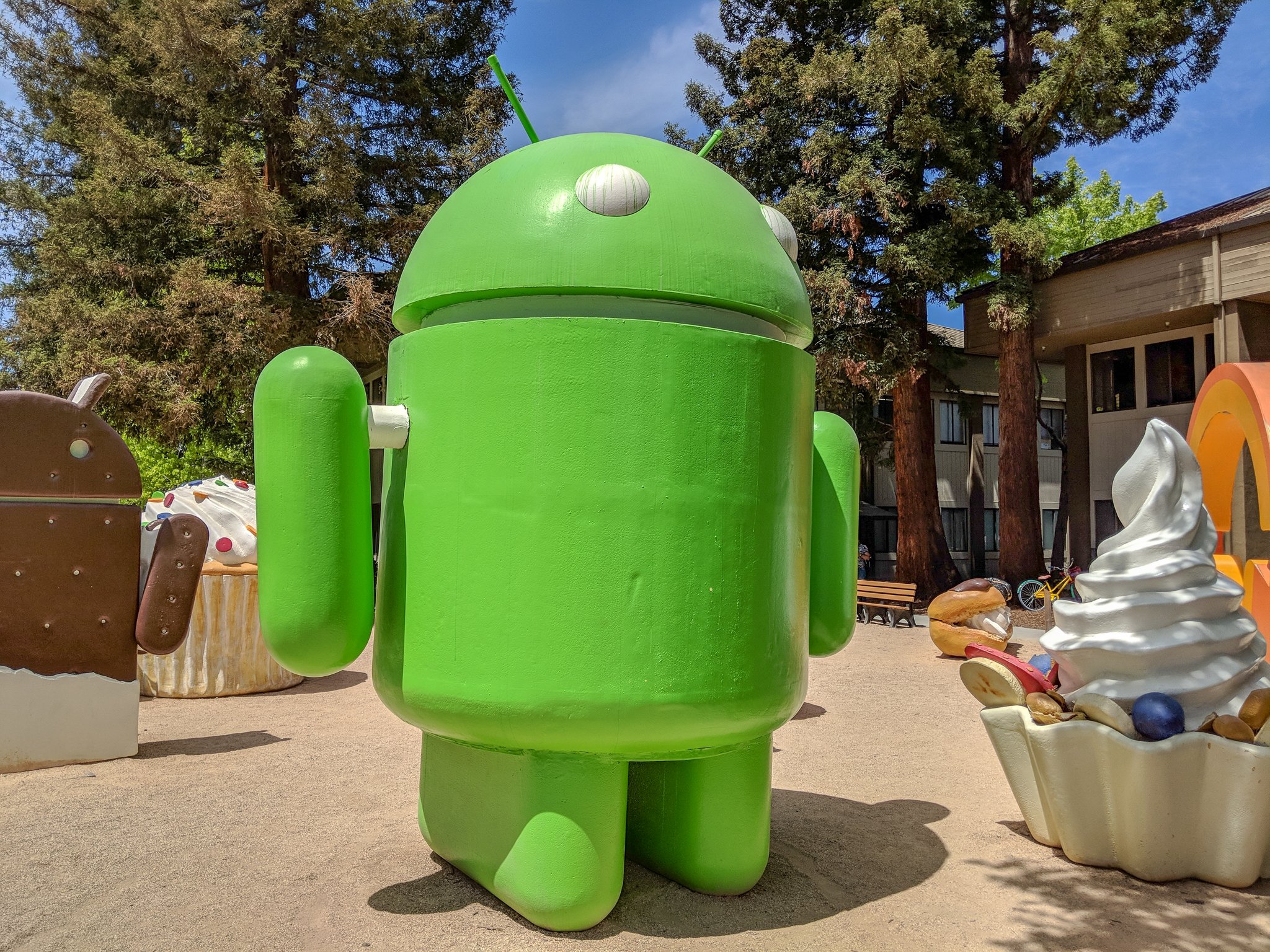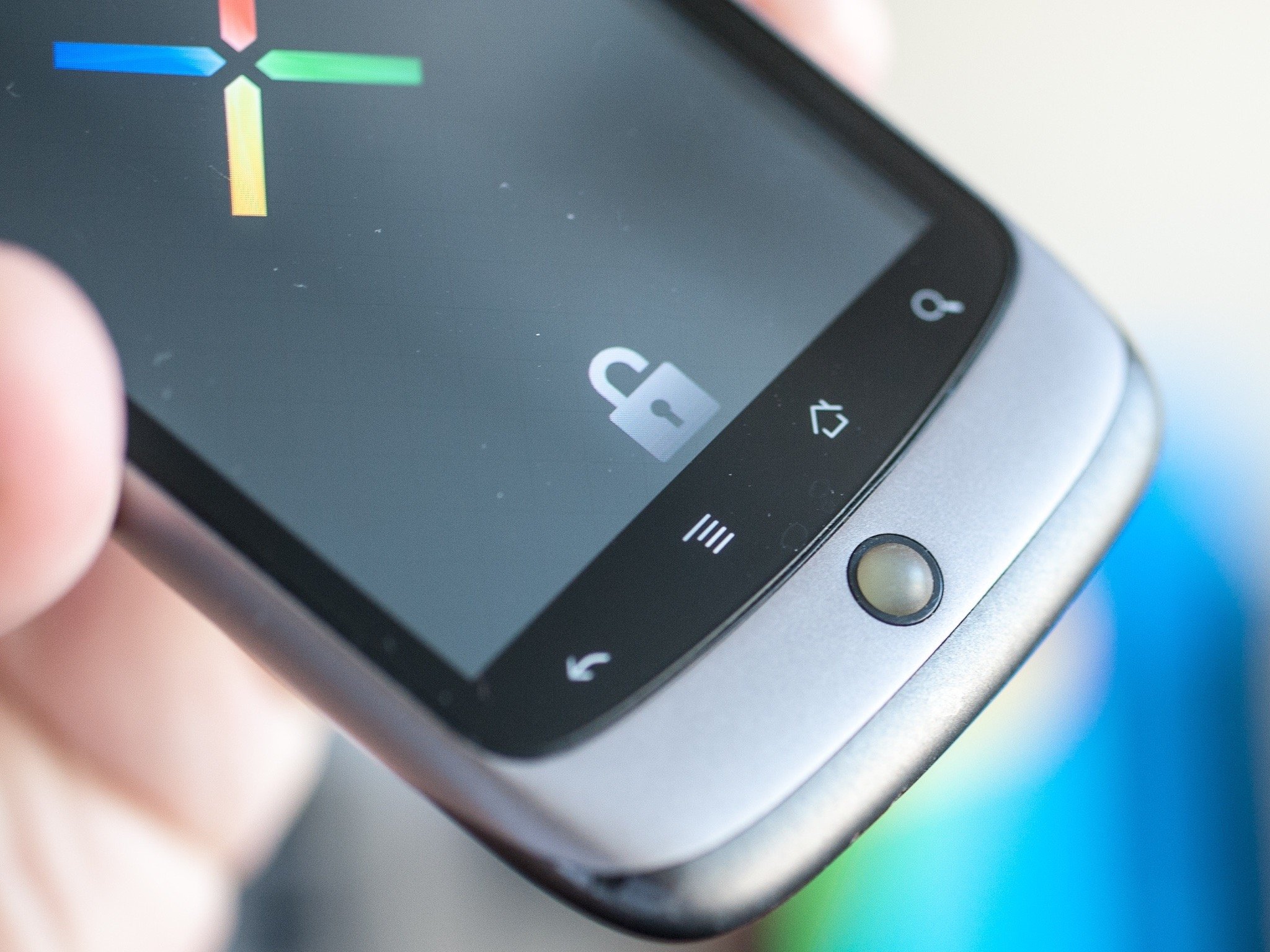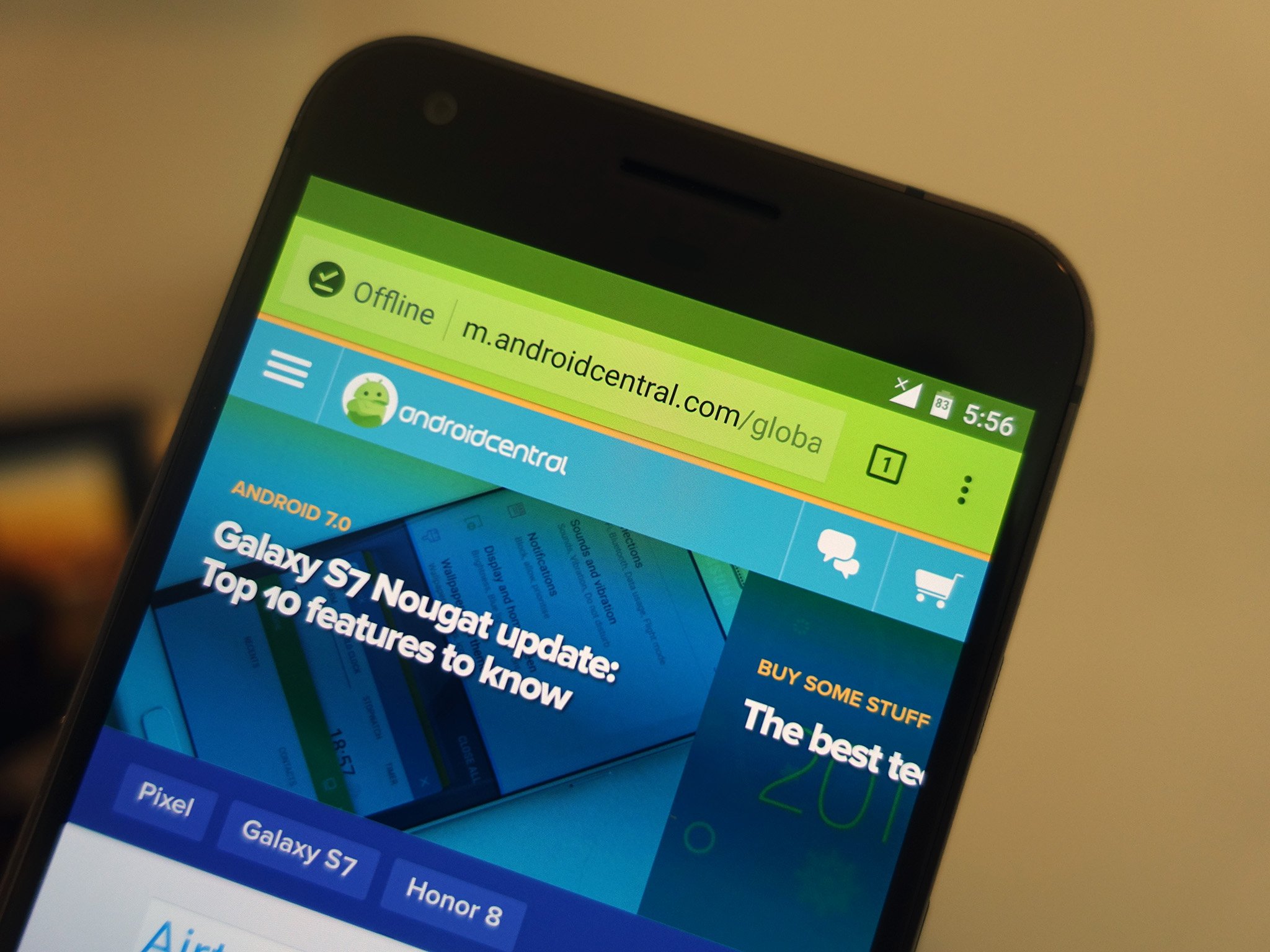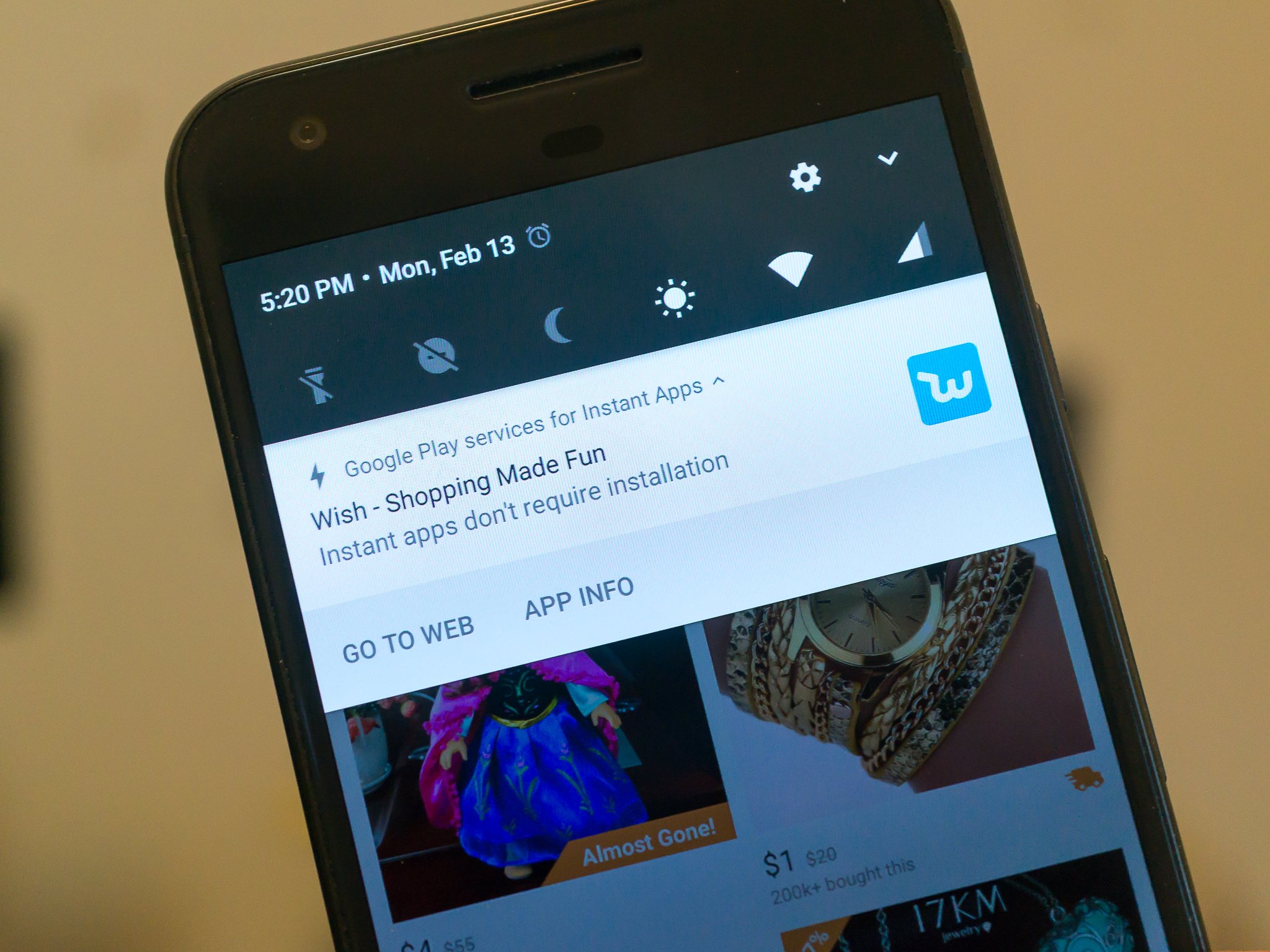Google's explanation of how Android is open isn't passing the smell test anymore.
 The European Union just told Google it has 90 days to pay €4.34 billion ($5.06 billion) for violating its antitrust rules, claiming the company has been forcing manufacturers to bundle Google Search, Chrome, and the Play Store as a bundle in phones that ship with Android. Since most people use the apps that are included on the phone, this move supposedly encourages people to use Google products without ever trying anything else. Google is appealing the ruling, claiming Android gives people more choice and creates a firm ground for developers to build for the largest possible audience. While there's undoubtedly going to be some conversation in the coming weeks over what that appeal is going to look like, it's clear Google's explanations for how Android functions openly is no longer enough, and things are probably going to have to change.
And, if you ask me, that sucks.
How we got here
The European Union just told Google it has 90 days to pay €4.34 billion ($5.06 billion) for violating its antitrust rules, claiming the company has been forcing manufacturers to bundle Google Search, Chrome, and the Play Store as a bundle in phones that ship with Android. Since most people use the apps that are included on the phone, this move supposedly encourages people to use Google products without ever trying anything else. Google is appealing the ruling, claiming Android gives people more choice and creates a firm ground for developers to build for the largest possible audience. While there's undoubtedly going to be some conversation in the coming weeks over what that appeal is going to look like, it's clear Google's explanations for how Android functions openly is no longer enough, and things are probably going to have to change.
And, if you ask me, that sucks.
How we got here
 In the early days of Android, Google let manufacturers put basically whatever they wanted on the phone as long as some minimum system requirements were met for the Android Market. And manufacturers did, in fact, install whatever they wanted. We had phones launch in the U.S. with over 100 pre-loaded apps; phones launch with Bing as the default search engine; and so many other generally terrible and user-hostile offerings to please the companies funding the launch — mainly carriers and manufacturers. These phones were terrible, and remained terrible when they didn't get a single software update. It was a bad time, and made recommending anything that didn't have the Nexus branding on the side pretty difficult.
Around 2013, Google stepped up and added restrictions to its Google Mobile Services agreements. Those restrictions included what could be placed on the home screen someone sees when the phone first starts, how many apps could be pre-installed, and a bunch of other very specific details. These agreements are all private between Google and its partners, but every once in a while details are made public for these agreements. Basically, as long as the manufacturer follows those rules it gets access to Google's Play Services and suite of apps like Chrome, Search, YouTube, Maps, and so on.
This is where things get a little iffy. Several versions of this agreement have required Google apps to be front and center on that initial home screen. Google's Search bar needed to be there, and folders with Google's apps needed to be there. And if you look at any new Android phone today, that initial home screen is pretty much identical across the ecosystem. Google's placement is prominent, specific, and consistent across the Android landscape right now — as long as that phone ships with the Play Store.
What the EU sees as wrong
In the early days of Android, Google let manufacturers put basically whatever they wanted on the phone as long as some minimum system requirements were met for the Android Market. And manufacturers did, in fact, install whatever they wanted. We had phones launch in the U.S. with over 100 pre-loaded apps; phones launch with Bing as the default search engine; and so many other generally terrible and user-hostile offerings to please the companies funding the launch — mainly carriers and manufacturers. These phones were terrible, and remained terrible when they didn't get a single software update. It was a bad time, and made recommending anything that didn't have the Nexus branding on the side pretty difficult.
Around 2013, Google stepped up and added restrictions to its Google Mobile Services agreements. Those restrictions included what could be placed on the home screen someone sees when the phone first starts, how many apps could be pre-installed, and a bunch of other very specific details. These agreements are all private between Google and its partners, but every once in a while details are made public for these agreements. Basically, as long as the manufacturer follows those rules it gets access to Google's Play Services and suite of apps like Chrome, Search, YouTube, Maps, and so on.
This is where things get a little iffy. Several versions of this agreement have required Google apps to be front and center on that initial home screen. Google's Search bar needed to be there, and folders with Google's apps needed to be there. And if you look at any new Android phone today, that initial home screen is pretty much identical across the ecosystem. Google's placement is prominent, specific, and consistent across the Android landscape right now — as long as that phone ships with the Play Store.
What the EU sees as wrong
 The claim against Google right now is that, in forcing manufacturers to put these three apps front and center, it strong-arms its partners, prevents suppresses competition, and keeps people from looking at other options. Specifically, the EU says including Google Search, Chrome, and the Google Play Store as mandatory apps in the Google Mobile Services bundle is wrong. Many analysts have likened Android today to how Windows looked before Microsoft lost its own antitrust cases in the mid-90's. If people don't know there are other choices, they won't go looking for them. There are a few problems with this comparison, but the overall claim is Google has forced people to use its apps and is reaping the benefits of that enforcement.
Android is only as good as it is now because of the Google Play Store.
Google's response makes a lot of sense. Anyone can uninstall or disable the pre-loaded apps and replace them with different apps from any developer. Many manufacturers make their own versions of Google's apps and install them right alongside Google's. And if manufacturers want Android itself to come with no strings attached, manufacturers don't need to use the Play Store. Android is free code that anyone can fork or alter, as Amazon has been doing for years. But the Google Play Store and its related apps do have some big rules to follow. That distinction has never really been clear to the public, because while Google wants people to know Android is open it also wants people to know Google and Android are one and the same.
There's a lot about this EU ruling which is troubling. First, the EU seems to only care about three of the eleven apps Google is including in its bundle. There's no call to strip Google Maps, for example, only Search, Chrome and the Play Store. Second, this decision fundamentally misunderstands how deeply integrated into one another these systems are and seems to intentionally observe them as standalone apps. Android is only as good as it is now because of the Google Play Store and Play Services. Through this, Google enforces security across the platform and wraps up a majority of the new features you hear about when a new version is announced. Android without Google services isn't just Android without apps, it's an entirely different and significantly less functional experience.
The appeal being made by Google is essentially claiming the environment it created within Android allows for more choice instead of less. Developers can build for a single platform and get a consistent experience across thousands of different devices, which manufacturers can give users access to by following Google's rules. With all of these manufacturers competing on such even software footing, the hardware-based feature fight has caused the price of hardware to go down which Google says is also good everyone. By creating a single platform for all of these manufacturers to compete against Apple, Google claims its decisions have been a net positive.
The future might suck a lot if Google loses
The claim against Google right now is that, in forcing manufacturers to put these three apps front and center, it strong-arms its partners, prevents suppresses competition, and keeps people from looking at other options. Specifically, the EU says including Google Search, Chrome, and the Google Play Store as mandatory apps in the Google Mobile Services bundle is wrong. Many analysts have likened Android today to how Windows looked before Microsoft lost its own antitrust cases in the mid-90's. If people don't know there are other choices, they won't go looking for them. There are a few problems with this comparison, but the overall claim is Google has forced people to use its apps and is reaping the benefits of that enforcement.
Android is only as good as it is now because of the Google Play Store.
Google's response makes a lot of sense. Anyone can uninstall or disable the pre-loaded apps and replace them with different apps from any developer. Many manufacturers make their own versions of Google's apps and install them right alongside Google's. And if manufacturers want Android itself to come with no strings attached, manufacturers don't need to use the Play Store. Android is free code that anyone can fork or alter, as Amazon has been doing for years. But the Google Play Store and its related apps do have some big rules to follow. That distinction has never really been clear to the public, because while Google wants people to know Android is open it also wants people to know Google and Android are one and the same.
There's a lot about this EU ruling which is troubling. First, the EU seems to only care about three of the eleven apps Google is including in its bundle. There's no call to strip Google Maps, for example, only Search, Chrome and the Play Store. Second, this decision fundamentally misunderstands how deeply integrated into one another these systems are and seems to intentionally observe them as standalone apps. Android is only as good as it is now because of the Google Play Store and Play Services. Through this, Google enforces security across the platform and wraps up a majority of the new features you hear about when a new version is announced. Android without Google services isn't just Android without apps, it's an entirely different and significantly less functional experience.
The appeal being made by Google is essentially claiming the environment it created within Android allows for more choice instead of less. Developers can build for a single platform and get a consistent experience across thousands of different devices, which manufacturers can give users access to by following Google's rules. With all of these manufacturers competing on such even software footing, the hardware-based feature fight has caused the price of hardware to go down which Google says is also good everyone. By creating a single platform for all of these manufacturers to compete against Apple, Google claims its decisions have been a net positive.
The future might suck a lot if Google loses
 When Microsoft was slapped with antitrust fines, it reacted by removing Internet Explorer entirely and giving users multiple browsers to choose from. The company later backed down from this and went back to including its own browser but making it very easy to install others, but the overall decision did not make Internet Explorer more or less popular. That browser already had lots of problems and even more competition, and without pointing fingers at other popular mobile platforms it is a nontrivial detail that Google allows you to set any app as the default, such as the browser.
Chrome, inside Android, encourages a lot of choice for users.
Android is overall a little different from Windows anyway. The mobile platform tightly integrates a lot of things, and Chrome is much more than just an app. Micro versions of Chrome exist in many Android apps, because developers recognized this mini Chrome was much more stable and functional than building their own in-app browser. Chrome is the underpinning for things like Android Instant Apps, which directly encourages developers to build tools that make it easier for users to try new apps and move away from the installed default. Chrome, inside Android, encourages a lot of choice for users. Taking that away will absolutely make Android users less likely to try new things and just stick with what is installed.
Assistant is another thing that will suffer if this decision forces Google to disconnect its apps from the central nervous system of Android. Access to Google's knowledge graph is what makes Assistant so powerful, and Search is arguably the most important part of that. Bing is never going to integrate into Google Assistant to provide results, even if those results were worth using. There's no arguing Assistant is leaps and bounds ahead of the competition right now because of its ability to deeply yet safely integrate into the lives of its users, and removing that key component could take a very long time to functionally work around.
Google has been building toward this grand unified experience for a while now, and a lot of that work will take several steps back as a result of this decision if it is enforced. Here's hoping the appeal yields positive results.
When Microsoft was slapped with antitrust fines, it reacted by removing Internet Explorer entirely and giving users multiple browsers to choose from. The company later backed down from this and went back to including its own browser but making it very easy to install others, but the overall decision did not make Internet Explorer more or less popular. That browser already had lots of problems and even more competition, and without pointing fingers at other popular mobile platforms it is a nontrivial detail that Google allows you to set any app as the default, such as the browser.
Chrome, inside Android, encourages a lot of choice for users.
Android is overall a little different from Windows anyway. The mobile platform tightly integrates a lot of things, and Chrome is much more than just an app. Micro versions of Chrome exist in many Android apps, because developers recognized this mini Chrome was much more stable and functional than building their own in-app browser. Chrome is the underpinning for things like Android Instant Apps, which directly encourages developers to build tools that make it easier for users to try new apps and move away from the installed default. Chrome, inside Android, encourages a lot of choice for users. Taking that away will absolutely make Android users less likely to try new things and just stick with what is installed.
Assistant is another thing that will suffer if this decision forces Google to disconnect its apps from the central nervous system of Android. Access to Google's knowledge graph is what makes Assistant so powerful, and Search is arguably the most important part of that. Bing is never going to integrate into Google Assistant to provide results, even if those results were worth using. There's no arguing Assistant is leaps and bounds ahead of the competition right now because of its ability to deeply yet safely integrate into the lives of its users, and removing that key component could take a very long time to functionally work around.
Google has been building toward this grand unified experience for a while now, and a lot of that work will take several steps back as a result of this decision if it is enforced. Here's hoping the appeal yields positive results.
source: https://www.androidcentral.com/eu-antitrust-case-against-android-sucks
date: Wed, 18 Jul 2018 17:36:21 +0000
Comments
Post a Comment